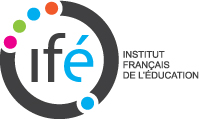
The purpose of this new study by the French Institute of Education, entitled “Digital technologies in higher education: challenges and opportunities”, is to examine these questions in the light of research conducted over the past decade in France, Europe and North America.
To what extent have digital technologies helped to modernize higher education and promote instructional reform? How have the digital practices of students and teachers changed over the past decade, and how have these practices impacted on learning expectations and conceptions of teaching? What is the impact of technology use on student performance? More generally, what are the benefits of promoting closer links between teaching and technology, and what are the conditions for realizing these benefits?
The purpose of this new study by the French Institute of Education, entitled “Digital technologies in higher education: challenges and opportunities”, is to examine these questions in the light of research conducted over the past decade in France, Europe and North America.
Analysis shows that while increasing numbers of students and teachers are reaping the benefits of the opportunities provided by digital technologies, the transition from experimental trials to a deeper change in teaching and learning practices will require an integrated approach at a ‘whole university’ level.
The move toward the “digital university” will require addressing various challenges while focusing on the needs of users. Among these are the challenge of digital literacy, which concerns students, teachers and administrative staff; the challenge of ensuring that instructional design professionals are able to provide appropriate support; and the challenge of promoting recognition of the teaching role of academics. One last major challenge will be to ensure that more ambitious studies are conducted to assess the penetration of technologies in higher education and to better understand the changes associated with technology use and the conditions of change.
Télécharger la version intégrale (version PDF)


